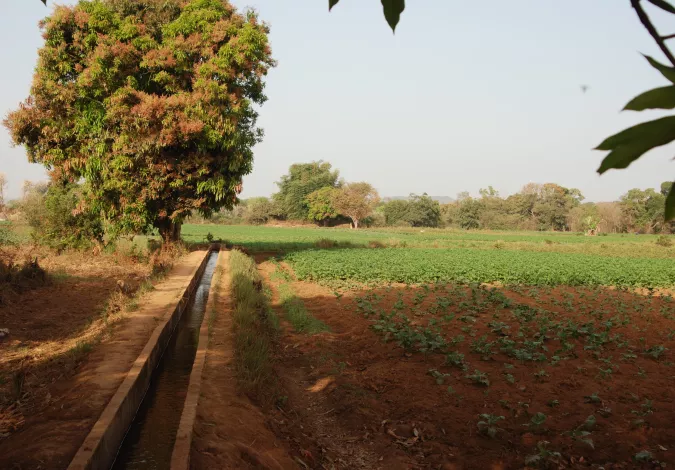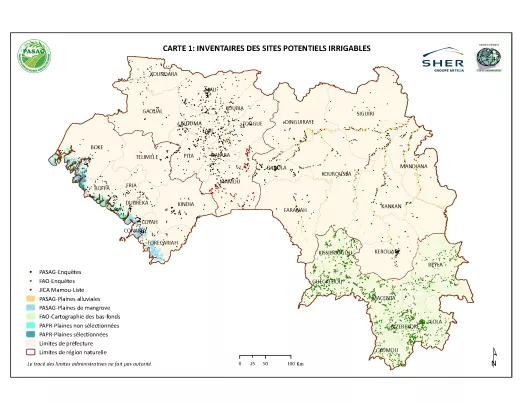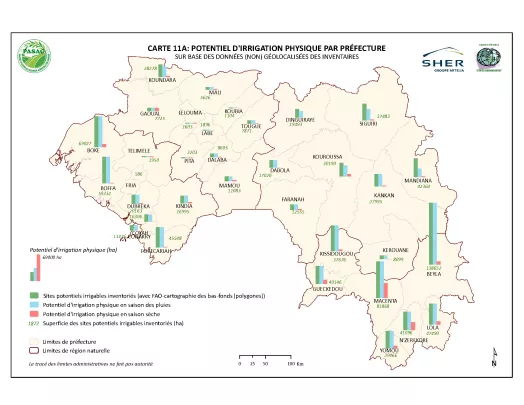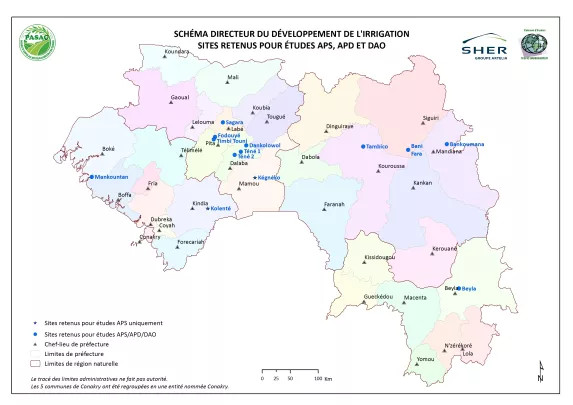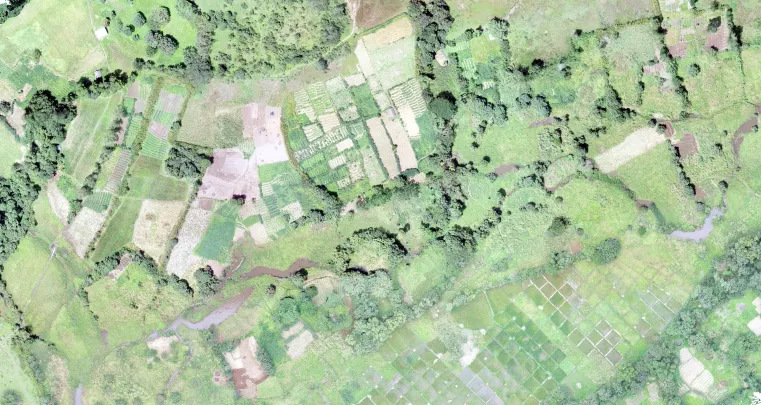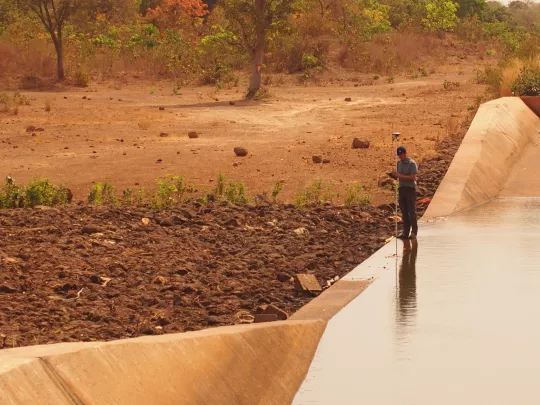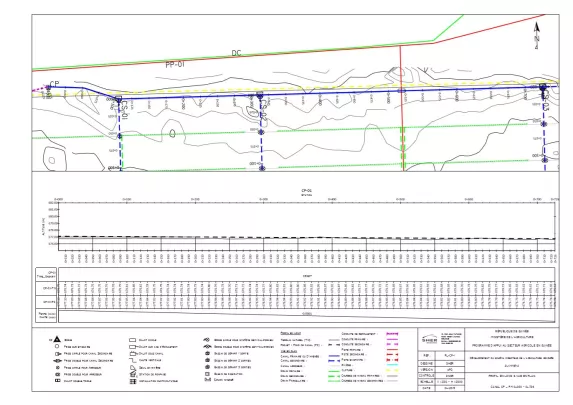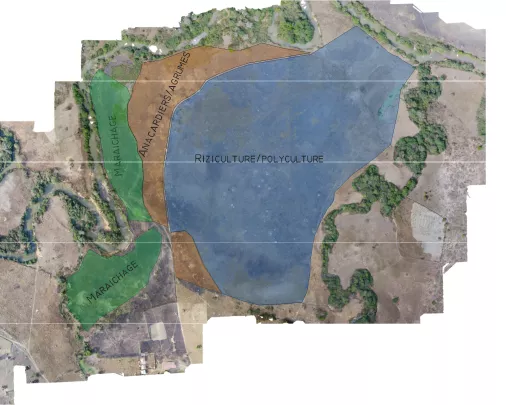Context of the project
As part of the Support Programme for the Agricultural Sector in Guinea (PASA-G) funded by the World Bank, SHER Ingénieurs-Conseils drew up a master plan for the development of irrigated agriculture in Guinea based on an exhaustive inventory of irrigable areas (plains and lowlands). The study, carried out with a national and multidisciplinary vision, also aimed to prepare a portfolio of detailed studies covering different irrigation technologies and various regional contexts.
The mission, carried out by a multidisciplinary team of around fifteen people (national and international staff), lasted 2 years and produced the following results:
- Assessment of the country's irrigable potential based on cartographic analysis, remote sensing, field surveys and the setting up of a spatial data infrastructure
- Drawing up a master plan with a diagnostic analysis, definition of major national objectives, strategic guidelines and an investment plan for the short, medium and long term as well as the preparation of a costed action plan
- Summary and detailed preliminary design studies for 38 sites, covering more than 6,000 ha spread over the 4 national natural regions, with technical solutions adapted to each context: mangrove developments, gravity-fed or pressurised networks supplied by solar pumping, river intakes, run-off water management systems, etc.
- Environmental and Social Impact Assessments (ESIA) and Environmental and Social Management Plans (ESMP) for each project
- Design studies for 3 reservoirs with capacities ranging from 35,000 to 25,000,000 m³
- Preparation of tender documents
- Organisation of training for staff of the Rural Engineering Department: development of smartphone applications for data collection, advanced use of Excel, introduction to Geographic Information System software (QGIS) and computer-assisted drawing software (AutoCAD 2D)
